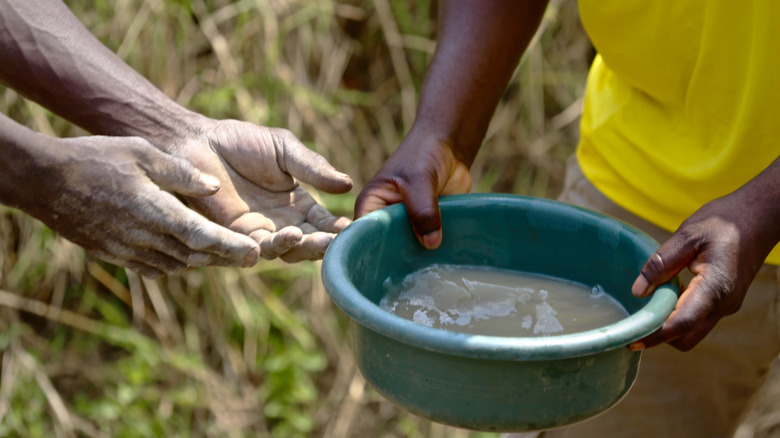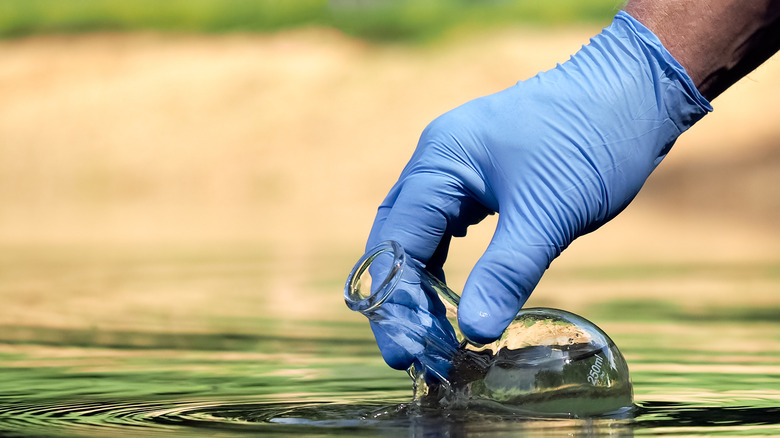What Is Cholera?
Cholera is an infectious, and potentially fatal, disease caused by a specific bacteria found in food and drinking water. Cholera is endemic in more than 40 countries worldwide, predominantly in Africa and South and Southeast Asia, the Centers for Disease Control and Prevention (CDC) reports. The disease is particularly common in countries with poor drinking water and sewage treatment. Each year, it's estimated to be fatal in nearly 100,000 people out of approximately three million cases.
The bacterium that causes cholera can be found in salty or warm coastal waters or even rivers. Its first pandemic occurred hundreds of years ago in India due to contaminated rice, and it would later reappear several times not only in India, but other countries. According to History, during the 19th century, cholera spread worldwide, infecting millions and killing thousands in its path. Since it was first discovered, there have been seven global cholera pandemics.
How cholera is spread
The bacterium known as "vibrio cholerae" is found in water or foods that have been contaminated with feces by someone infected with the bacteria. Without proper sanitation, the bacteria can easily infect others who ingest it just by drinking water or eating a meal. According to Mayo Clinic, cholera is found in foods like grains, particularly rice, seafood, and raw vegetables or fruit. Those who develop cholera can experience symptoms anywhere from a few hours or up to five days after drinking or eating contaminated water or foods.
In cholera cases, there are a number of unpleasant symptoms, like diarrhea, vomiting, and muscle cramps. These symptoms can cause your body to lose weight quickly, possibly resulting in severe dehydration, WebMD reports. However, even if you're exposed to cholera bacteria, that doesn't necessarily mean you'll develop the disease itself. If contracted, the bacteria can live in your feces for up to two weeks. Antibiotics and IV fluids may be given to those with cholera as treatment.


